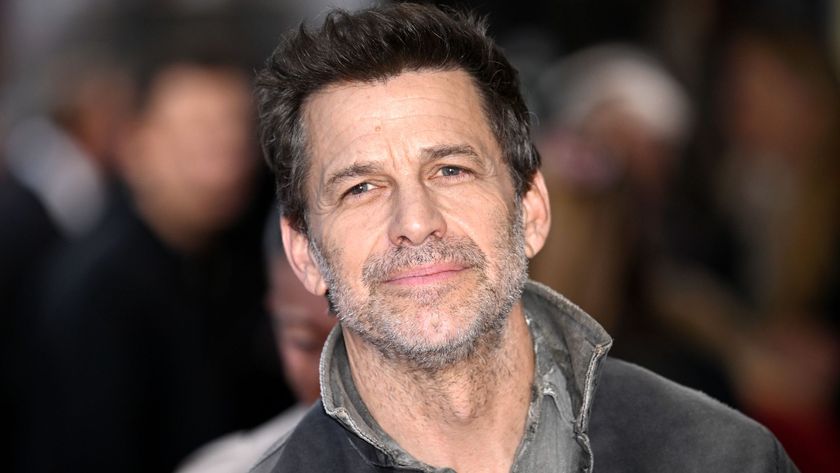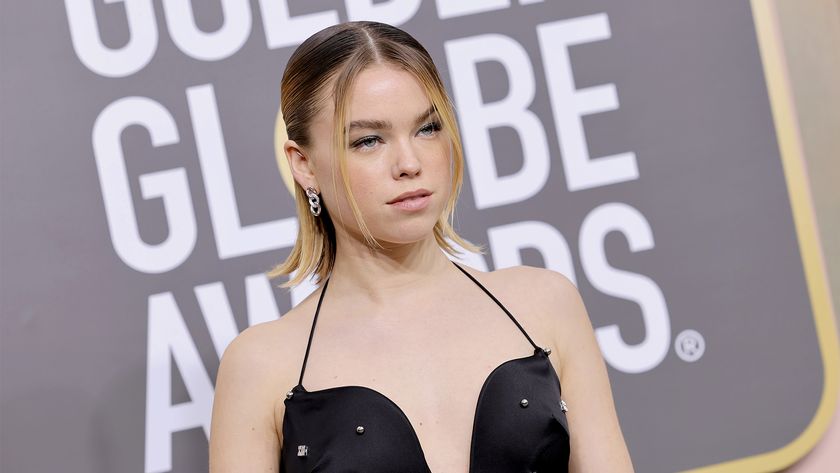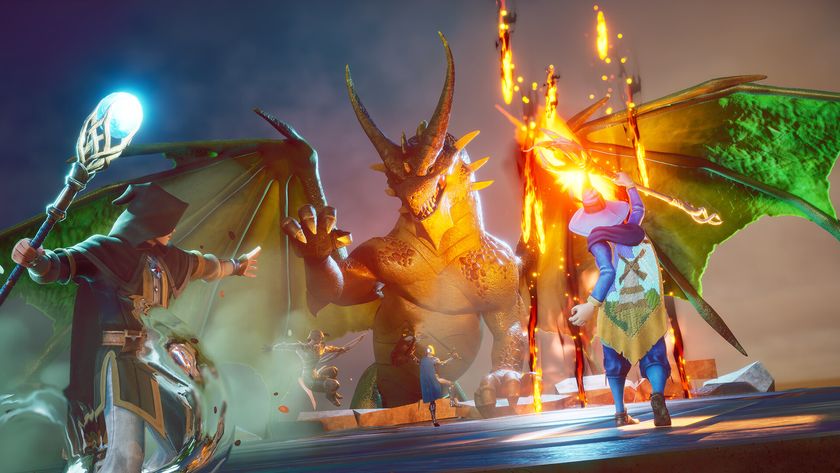The Making Of On The Road
50 years in development hell...
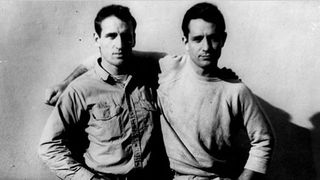
Source Material
Published in 1957, Jack Kerouac's On The Road is a sprawling coming of age story that also serves as a snapshot of cultural America in the middle of the 20th Century. Described by The New York Times as "the most beautifully executed, clearest and most important utterance yet made by the generation Kerouac himself named years ago as 'beat'", it was wildly popular among the nation's youth, capturing as it did the sense of possibility evoked by a world of open roads and shifting morals.
A largely autobiographical work, the novel tells the story of Sal Paradise (a fictional substitute for Kerouac), a wannabe writer who strikes out in search of adventure with his feckless new friend, Dean Moriarty. Together, the two of them travel across America between 1947 and 1950, encountering many significant cultural figures on their way. Whilst particularly of its era, the book's themes of friendship and self discovery are timeless, which might explain why the desire to make a film adaptation has burned so bright for so long...
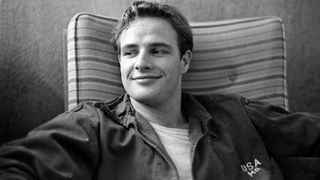
An Offer He Could Refuse
The phenomenally successful novel was arguably the landmark text of the Beat Generation, and it should come as no surprise that a film adaptation has been in the offing since day one. Warner Bros were the first studio to make an approach, offering $110,000 to purchase the rights to the property. Kerouac couldn't believe his luck, only for his agent, Sterling Lord, to reject the offer in the hope of more money. Sadly for him, none was forthcoming.
Not to be put off, Kerouac decided to get things moving himself, sending a letter to Marlon Brando in 1957, outlining his plan to adapt the novel himself. "Dear Marlon," began the letter. "I'm praying that you'll buy On The Road and make a movie out of it. Don't worry about structure; I know how to compress and rearrange the plot a bit… making it into one all-inclusive trip instead of the several voyages coast-to-coast in the book. You play Dean and I'll play Sal… Come on now Marlon, put up your dukes and write!" Brando never replied…
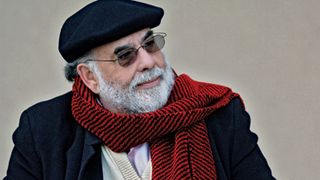
Enter Coppola
Kerouac would never see his baby brought to the big screen, dying in 1969 before the film was even close to being made. It would take another nine years before a new buyer was found, when Francis Ford Coppola threw his hat into the ring, snapping up the rights to the novel in 1978. However, the process of adaptation would prove tricky.
Coppola commissioned eight different adaptations from various writers, constantly searching for a workable way of compressing the sprawling novel into something that could fit a conventional running time. Eventually, the director worked out a version he was happy with and planned to shoot the project in black and white on 16mm film, only to fall short of the necessary funding. The film remained dormant for several more years (narrowly avoiding a brief dalliance with Joel Schumacher), before a meeting with The Motorcycle Diaries ' Walter Salles finally got things moving...
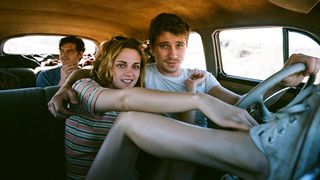
Homework
Flushed with critical praise for his work on The Motorcycle Diaries , Salles received a call from Coppola summoning him to a meeting at his vineyard in California to discuss the possibility of bringing On The Road to the big screen. Salles was understandably flattered by the interest, but concerned that as a Brazilian, he wasn't immersed in the social and cultural history of the novel. Together, the two came up with a plan to remedy the situation.
Salles would embark upon his own journey of discovery around the US, talking to afficionados of the book, including a number of real-life figures such as Caralyn Cassady and Al Hinkle upon whom the book's characters were based. Salles' findings were filmed throughout, and compiled into a documentary entitled Searching For On The Road . The film will be completed and released after On The Road has arrived in cinemas…
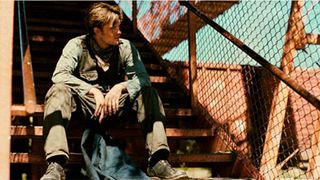
Boiling It Down
Salles contacted Motorcycle Diaries screenwriter Jose Rivera to take on the considerable task of streamlining Kerouac's story into something that could be translated to film. Spending around six months studying the original text, Salles ploughed through around 20 drafts before settling on a version he was happy with. His secret? Drawing from Kerouac's original manuscript, rather than the published novel.
"The main difference between the scripts I wrote and those written prior was that I based my screenplay not entirely on the published book but on the scroll," said Rivera to The Hollywood Reporter . One key element of Rivera's script was to restore a reference to the death of the narrator's father. "It helped us realise that this was in part a search for a spiritual father for Jack," explains the writer. It also gave the filmmakers a sturdier framework around to which to hang Kerouac's freewheeling narrative…
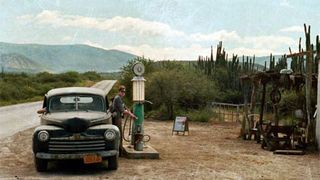
False Start
With Salles in place to direct and a script ready to go, all seemed to be in place at long last, only for the project to stall over financial matters. A budget of $35 million had been agreed with French studio Pathé, only for the financiers to develop cold feet at the last moment, demanding that Salles operate under a vastly reduced budget.
Having already spent hundreds of hours working out how to bring the film in at $35 million, this was a disaster for Salles and his team. The offer to green light the film was still on the table, but Salles was adamant that for his adaptation to do the novel any kind of justice, a new deal would have to be secured elsewhere. Having stalled time and again over the years, the project was on the shelf once more, until salvation arrived at the 2010 Cannes film festival...
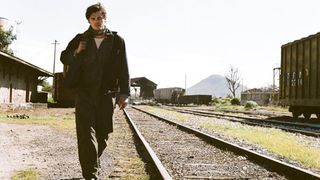
Cannes Do
When Salles travelled to Cannes in 2010, On The Road was no longer at the forefront of his mind. He was scheduled to head first to Paris, for a meeting with MK2 Productions to discuss other potential film projects, when talk turned to On The Road . The studio were intrigued, and the first steps were made towards resurrecting the film once more.
Reconvening with MK2 at Cannes, Salles received his long-awaited green light, with a budget agreed at a compromise figure of around $25 million. Three years after he had first climbed on board, Salles' version of On The Road was officially a go. Now all he needed to do was recruit the cast members he'd first had his eye on back in 2007. Surprisingly, it turned out to be an easier process than he could have hoped for...

Sam Riley Is Sal Paradise
Sam Riley was Salles' first choice to play Sal Paradise, the wide-eyed writer who represent's Kerouac's fictionalised self in the novel. Riley had reconciled himself to missing out on the part when Pathé pulled the plug, but couldn't believe a second chance had presented itself when Salles came calling once more. "I was going to do it two and a half years ago," he told Collider , "and then it ran out of money, so I thought I was just on the list of other actors that nearly played the role, and I was quite happy with that, to be honest, because it’s a great list. I wouldn’t have had to go through the humiliation of getting it wrong."
As it turned out, the part was still his, and Riley threw himself into an intensive process of transformation. "That was probably the most I’ve had to prepare for something," he explains, "because there’s an awful lot of expectation riding on that. Preparation wise, I’m a pasty, very skinny, Englishman, and I was going to be playing a sporty American, so the first thing I had to do was get a personal trainer and whip myself up into shape in a very short amount of time. I had dialect coaching every day, for two months before shooting and throughout as well. I learned to speak French-Canadian with a Quebecois accent, and I learned how to use a typewriter. Fortunately, I can smoke, which he was very good at, as well."
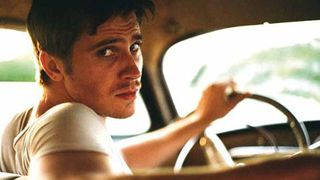
Garrett Hedlund Is Dean Moriarty
For the part of the charismatic Dean Moriarty, Salles had earmarked Tron: Legacy 's Garrett Hedlund as the man for the job. For Hedlund, a boyhood fan of the book, it was a part beyond his wildest dreams. " On The Road is extremely special to me, because when I first read it at 16 or 17, I looked it up online and it said Francis Ford Coppola was producing it or directing it," Hedlund told us back in 2010. "I said 'Great, I'll never get a chance at this.' Now I'm playing Dean Moriarty and I couldn't be happier."
Indeed, Hedlund was so committed to the project that he spent two years turning down potentially conflicting projects while the film waited for financial backing. "I had been attached to it since September 2007," explains the star, "and I think, man, if I hadn't been able to do it, a part of me would definitely drowned a little bit." Fortunately, his faith was rewarded, and Hedlund became the second of Salles' three leads to take up the offer at the second time of asking…
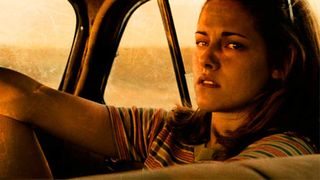
Kristen Stewart Is Marylou
When it came to finding the right girl to play Marylou, Moriarty's first wife, Salles took instruction from fellow filmmaker Alejandro Gonzalez Inarritu, who contacted the director with a welcome piece of advice. "Look no further," said Inarritu, regarding the casting process for Marylou. "I've just seen the first cut of Sean Penn's Into The Wild , and there's this 16-year-old girl you'll fall in love with." That 16-year-old was none other than Kristen Stewart.
Despite her being a virtual unknown at the time, Salles was duly taken with Stewart, and agreed with Inarritu that she was perfect for the role. However, in the intervening period before the film was finally greenlit, Stewart had become a massive star thanks to the advent of the Twilight series. Thinking she would no longer be in his reach, Salles returned to the now-megastar to see if she might still be interested, and to his delight, she was. Not only that, but she agreed to a massive pay cut, accepting around $200,000 rather than the $20 million she received for Breaking Dawn pt. 2 . Things were coming together...
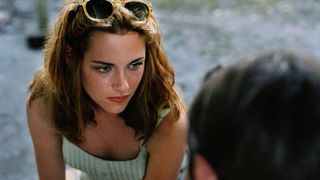
Dream Come True
Agreeing to a fee a hundred times smaller than her A-list status could command isn't behaviour typical of your average Hollywood star, and yet for Stewart, the excitement of appearing in a movie version of On The Road was more than ample recompense. "When it was sort of coming to be and I was the right age to play the part of Marylou, I didn't even want to think about it a whole lot, because I was like, 'They're gonna hire Scarlett Johansson,'" confesses Stewart. "Which would've been fantastic, but I just couldn't imagine inserting myself into that equation."
Indeed, even when she ended up taking the role, she'd still have to pinch herself at the idea it was really happening. "I worked with my friend Tom Sturridge, and he plays Carlo Marx, who's Allen Ginsberg," she says. "And I would look over at him, and he's doing this fucking full-on Allen Ginsberg crazy monologue in the corner of some thumping, raving party, and I'm dancing to bebop jazz, and I'd be like, 'Tom, we're doing On The Road . Just so you know? On The Road ."
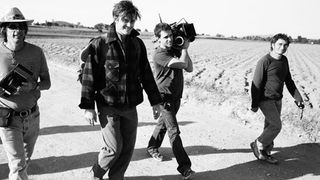
Method Acting
Before shooting began, Salles gathered his newly assembled cast to a beatnik boot camp in which the director sought to explain the vibe he was aiming for with On The Road . The group watched screenings of Godard's Breathless and Cassavetes' Shadows , in order to absorb the freewheeling style Salles was looking for, while characters including Neil Cassady's son and Luanne Henderson's daughter arrived to give talks about the subject material.
"[ The aim was to ] get together and hang out with a lot of experts and biographers from the Beatnik generation, who came in to talk to us," explains Sam Riley. "We would watch films from that time and listen to Charlie Parker and Dizzy Gillespie while doing push-ups and picking our fingers. I learned to type and I learned to speak French Canadian with a Quebecois accent. It was a full schedule."
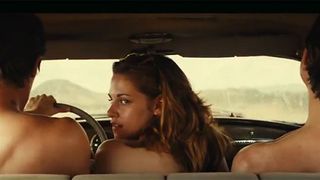
In The Mood For Love
Kristen Stewart's involvement in the production meant that not only did filming have to be completed by October 2010 (in order to accommodate her commitments to the final two Twilight films), but an entourage of bloggers, journalists and paparazzi were never far away. This would become particularly problematic around the time of Stewart's notorious love scenes with Sam Riley, which had to take place upon a closed set.
Whilst Riley confessed to feeling "sick with anxiety" before the scenes, Stewart took it all in her stride. "I wasn’t scared, honestly," she says. "It’s kind of insane to watch now. I’m like, ‘Who is that?’ But I think — as every actress says when they do this is — it just felt so right. It was so within a different world and so within a different environment that I don’t even really feel — I mean, I am personally connected to it, of course — but it is something outside of myself…. I felt so safe with Walter. Nothing was ever, ever about taking your clothes off."
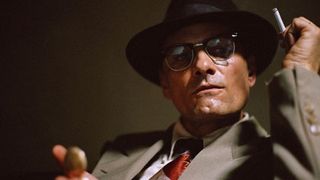
A-List Ensemble
Alongside his central trio, Salles set about assembling a remarkably starry supporting cast, including Steve Buscemi, Kirsten Dunst, Amy Adams, Terrence Howard, Alice Braga, Elizabeth Moss and Viggo Mortensen. Sam Riley was particularly nervous to meet the latter, fearing that he, "might ask me something about Nietzsche, like, 'What do you think about the Ubermensch?' The night before he arrived, I spent hours Wikipedia-ing Jean-Paul Sartre and others just in case he threw me a curveball."
No such grilling was forthcoming, although Riley did confirm that, "he's a very cerebral man". Indeed, by all accounts, everybody seemed to have a ball. "I spent the whole night talking to Steve Buscemi," enthuses Riley, "asking him a million questions about The Big Lebowski and Reservoir Dogs . He was so good humoured. He just sat and talked. He was a dream."
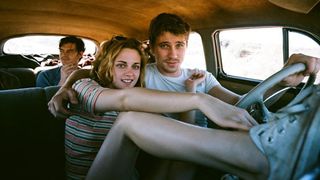
Homecoming
Two years after receiving the green light at Cannes 2010, Salles and his crew will return to La Croisette triumphantly this week, when the film get's its first official airing at the festival. Entered in competition, it's one of the contenders for the Palme d'Or, recognition that Salles claims is tribute to the amount of sheer hard work required to make the film a reality.
" On the Road is a project for which a group of people, many of them from the family of Motorcycle Diaries , devoted seven years of their lives. The fact that the film was selected in the Main Exhibition Cannes Film Festival is a prize for the young actors and technicians who gave so much to the film. On the Road exists only because of the passion we all had for the book, Kerouac and the behavioural revolution that he unleashed."
On The Road opens in the UK on 21 September 2012. If you haven't already seen it, you can check out the trailer above...

George was once GamesRadar's resident movie news person, based out of London. He understands that all men must die, but he'd rather not think about it. But now he's working at Stylist Magazine.
